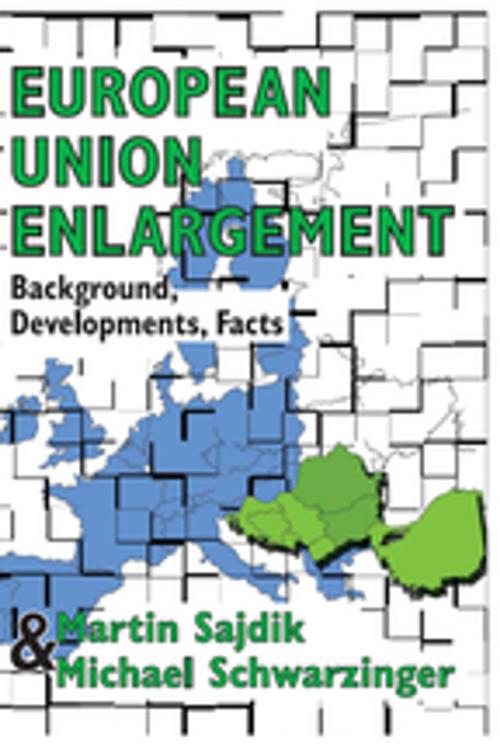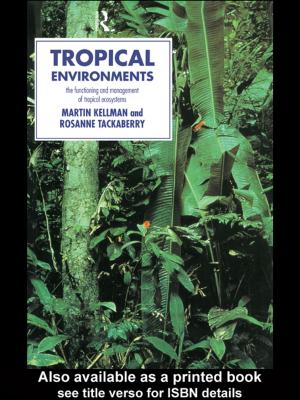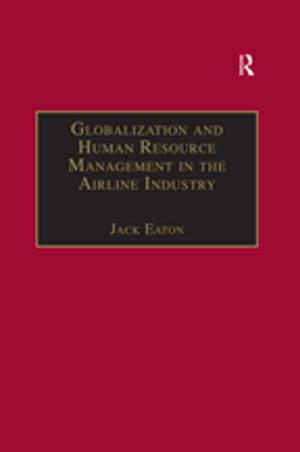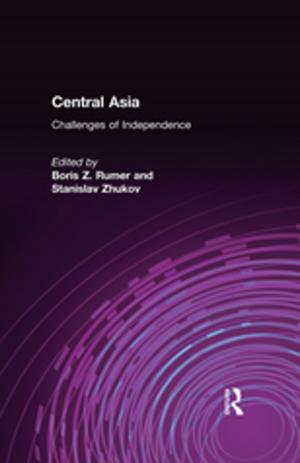European Union Enlargement
Background, Developments, Facts
Nonfiction, Social & Cultural Studies, Political Science, International, International Relations| Author: | Michael Schwarzinger | ISBN: | 9781351311106 |
| Publisher: | Taylor and Francis | Publication: | September 29, 2017 |
| Imprint: | Routledge | Language: | English |
| Author: | Michael Schwarzinger |
| ISBN: | 9781351311106 |
| Publisher: | Taylor and Francis |
| Publication: | September 29, 2017 |
| Imprint: | Routledge |
| Language: | English |
European Union Enlargement offers an intense and detailed analysis of the almost ten-year process of preparing and negotiating the accession of Eastern, Southeastern, and Central European countries, as well as Mediterranean countries to the European Union. In the end, ten joined in 2004, with two more to follow in 2007. European Union Enlargement was written by two diplomats who were directly involved in that process.
Sajdik and Schwarzinger relate their first-hand experience of proceedings that occurred behind closed doors. They detail how the vision of adding some countries gradually developed into the concrete policy intended to enlarge the European Union. A special chapter explains the Accession Process as well as the Union's strategy that prepared the candidate countries, in legal and economic terms, for membership.
The authors describe in detail the complex negotiations that occurred from 1998 to 2002. These include activities of EU member states as well as the European Commission with respect to the candidate countries. They further offer a brief analysis of future possibilities of EU-accession by Balkan nations and Turkey. A number of topical chapters deal with particular key issues involved in the process: free movement of workers, agriculture, financing of the enlargement, transport, and nuclear safety. Other chapters deal with the enclave of Kaliningrad as well as the Stability and Association Pact for South East Europe.
In addition to providing key information about the process, this volume is also a case study of European policies and diplomatic practice. The enlargement negotiations from 1998 to 2002 were the most complex ones the European Union had ever conducted. In consequence, this work gives insight into the working methods of both the institutions in Brussels and of the representatives of the member states that made them a success. It will be of interest to those concerned with European politics, international organizations, and area studies.
European Union Enlargement offers an intense and detailed analysis of the almost ten-year process of preparing and negotiating the accession of Eastern, Southeastern, and Central European countries, as well as Mediterranean countries to the European Union. In the end, ten joined in 2004, with two more to follow in 2007. European Union Enlargement was written by two diplomats who were directly involved in that process.
Sajdik and Schwarzinger relate their first-hand experience of proceedings that occurred behind closed doors. They detail how the vision of adding some countries gradually developed into the concrete policy intended to enlarge the European Union. A special chapter explains the Accession Process as well as the Union's strategy that prepared the candidate countries, in legal and economic terms, for membership.
The authors describe in detail the complex negotiations that occurred from 1998 to 2002. These include activities of EU member states as well as the European Commission with respect to the candidate countries. They further offer a brief analysis of future possibilities of EU-accession by Balkan nations and Turkey. A number of topical chapters deal with particular key issues involved in the process: free movement of workers, agriculture, financing of the enlargement, transport, and nuclear safety. Other chapters deal with the enclave of Kaliningrad as well as the Stability and Association Pact for South East Europe.
In addition to providing key information about the process, this volume is also a case study of European policies and diplomatic practice. The enlargement negotiations from 1998 to 2002 were the most complex ones the European Union had ever conducted. In consequence, this work gives insight into the working methods of both the institutions in Brussels and of the representatives of the member states that made them a success. It will be of interest to those concerned with European politics, international organizations, and area studies.















